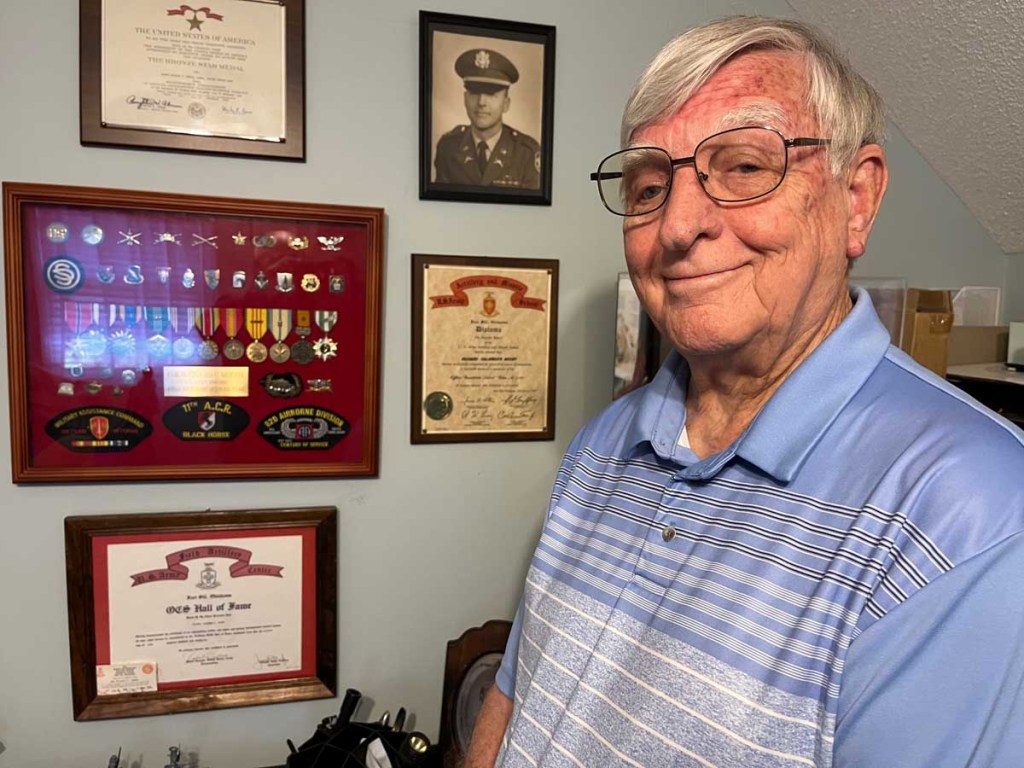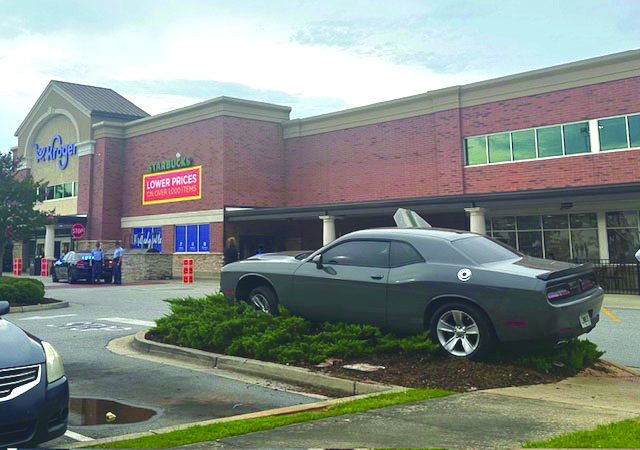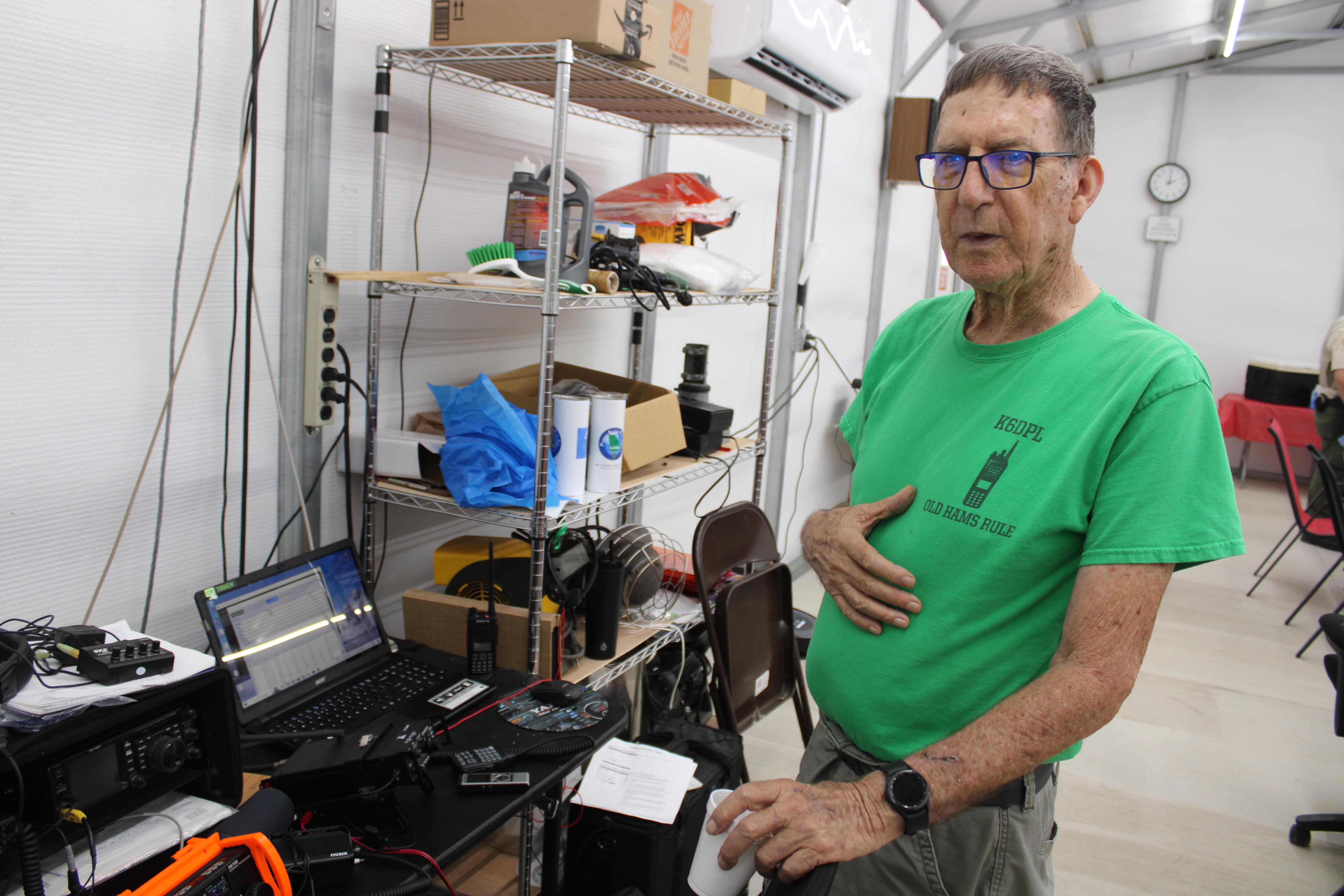A Veterans Day thanks to all who have served
Published 7:00 am Friday, November 10, 2023

- Retired Col. Richard Moody is a highly-honored veteran, including being a member of the U.S. Field Artillery Hall of Fame.
If you’re a veteran, stand up and take a bow. It doesn’t matter what you did in the military, whether you drove a truck at Fort Eustis in Virginia, served on the front lines in Vietnam or carried a radio in Afghanistan.
Trending
“All of us veterans, we all agreed to do the same thing,” says Milledgeville’s Richard Moody, himself an honored veteran. “We all agreed to defend our country. And if that guy was not driving that truck, the guys couldn’t be overseas. It takes 10 to 15 guys to back up one front-line guy. It takes everybody.”
Nov. 11 is the day we annually honor our veterans of the armed forces and those killed in our country’s wars. The observance started in 1919 on the first anniversary of the armistice that ended World War I. It was changed from Armistice Day to Veterans Day in 1954.
Every day is Veterans Day for Richard Moody.
If he sees a people in uniform, he’ll shake their hand and thank them for their service.
“And if I’ve got any money, I might buy their lunch,” he says, laughing.
Moody’s family has a long history at Georgia Military College.
Trending
Richard finished GMC Prep School in 1957 and Junior College two years later. His late mother, Mrs. Virginia Moody, created the rendering of the prototype for the GMC crest that is worn on the uniforms of every cadet.
His older brother, Bill, and his younger brother, Ken, are GMC alumni. His son, Kyle, is a GMC graduate. His daughter-in-law, Lani, is an administrative assistant in the elementary school. His granddaughter, Kylie, is an eighth grader in the GMC Prep School.
Moody grew up on North Jefferson Street, about where Ivey Tire is today. He’d walk to elementary school on the GMC campus.
Then, as now, he was strategic. GMC was uphill on North Jefferson, so he went over a block and walked to school on Wayne Street, which was flat.
Moody said he learned the importance of military discipline and tradition at GMC.
“Shining shoes and brass, wearing a clean, starched uniform was my thing,” he said.
So, it was natural that he entered the Army as a private. He wanted to learn from the ground up what everybody does.
Moody went on to be accepted in Officer Candidate School and was commissioned a 2nd Lieutenant. He had two tours of duty in Germany, serving in Artillery, Armor and Calvary divisions.
In a 33-year military career, including serving as commandant of a reserve unit in Macon, Moody attained the rank of Colonel. He won many awards, including being named to the U.S. Field Artillery Hall of Fame.
Perhaps his most memorable military service experience came when he served in Vietnam as a senior adviser to a South Vietnamese Army unit. He was there in 1968 and 1969.
“There were a whole lot of different impressions of the Vietnamese people, depending on who you talked to,” Moody said. “I did everything with them. I ate with them. I slept near them. They were dependent on me. I was dependent on them. I don’t ever recall a situation where I felt uncomfortable.
“We had translators to help communicate, but after awhile I picked up enough Vietnamese to understand what was needed. My counterpart was well trained. He had a mission and was trying to do his job.”
Moody also played a role in helping get housing built for the families of Vietnamese troops who were living in trenches covered by ponchos.
He’s proud that as an adviser he was awarded a TIKA Badge, the badge his Vietnamese Armor unit wore.
“It’s an elite thing,” he says, modestly. “Nobody knows what it is because you don’t see it that much.”
The horrors of the war in Vietnam were not lost on Moody.
“A lot of those boys – from Bangor, Maine, to Ludowici, Ga. — were drafted out of high school, sent to basic training at Fort Jackson for six to eight weeks, taught how to shoot a gun, sent to Vietnam and shuffled out to various units,” he said.
And some of the ones who were fortunate enough to come home were met with disdain.
“When they got off the plane, they were told to put on civilian clothes,” Moody said. “People were spitting on them, throwing things at them, calling them baby killers. They were not very well received.”
And neither the Vietnam veterans nor their families got much help from the government back then, he said.
That’s why Moody, 84, continues a crusade to help all veterans, but especially Vietnam veterans.
When he donates to GMC, he makes sure it is designated for a Vietnam Vets fund.
Moody also works with area funeral homes to donate flag boxes to families of deceased veterans.
What Moody likes to do best, though, is to thank soldiers personally.
When he visits the PX at Fort Moore (formally Fort Benning) in Columbus, for instance, he calls it “a walk among the heroes.”
“I feel good about being near them,” Moody said. “You might see a soldier there drinking coffee who has been to Afghanistan. Or they could have been in Manila or in the special forces. You don’t know where they’ve been, but they’re all heroes.
“That thing about giving the Army a blank check — for any amount of money up to and including your life. Well, they still do that and all of us who served did that. All of us.
“And I thank every single person who is serving — and who has served.”





